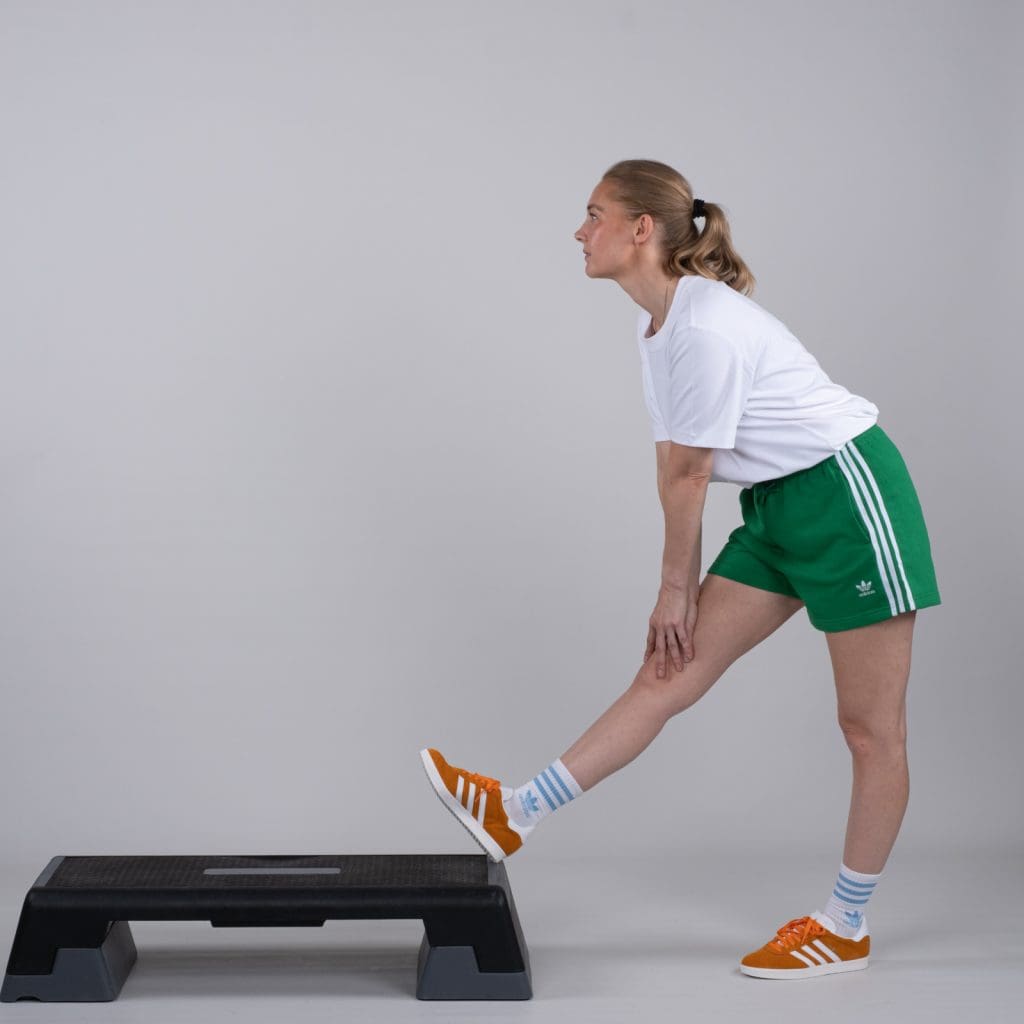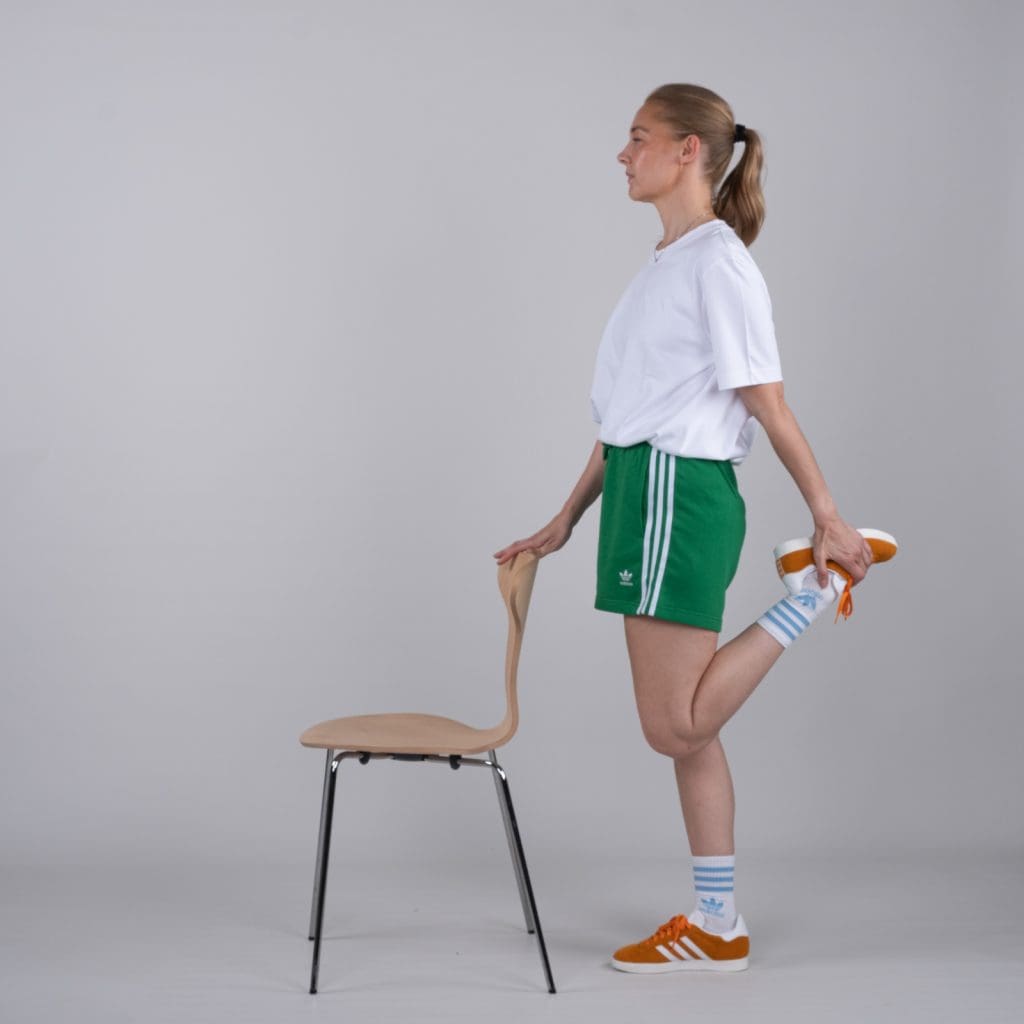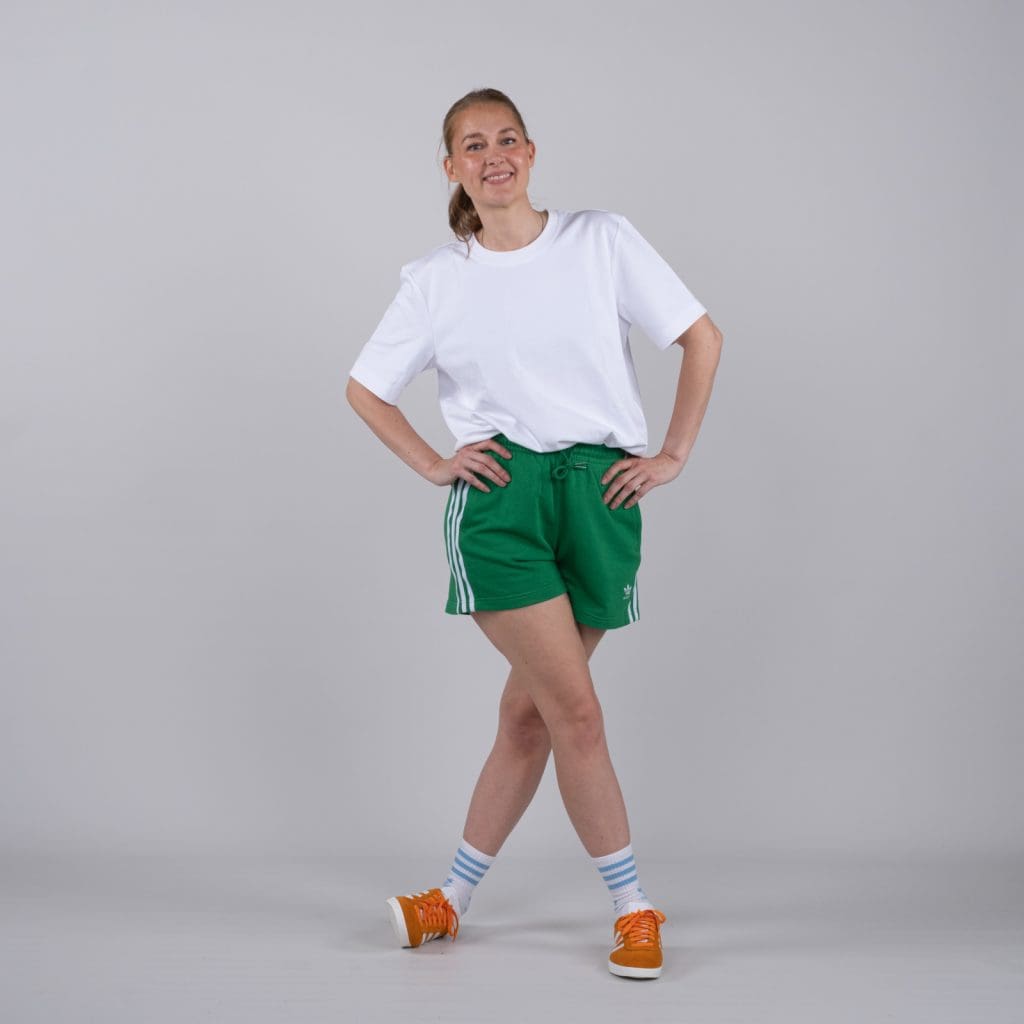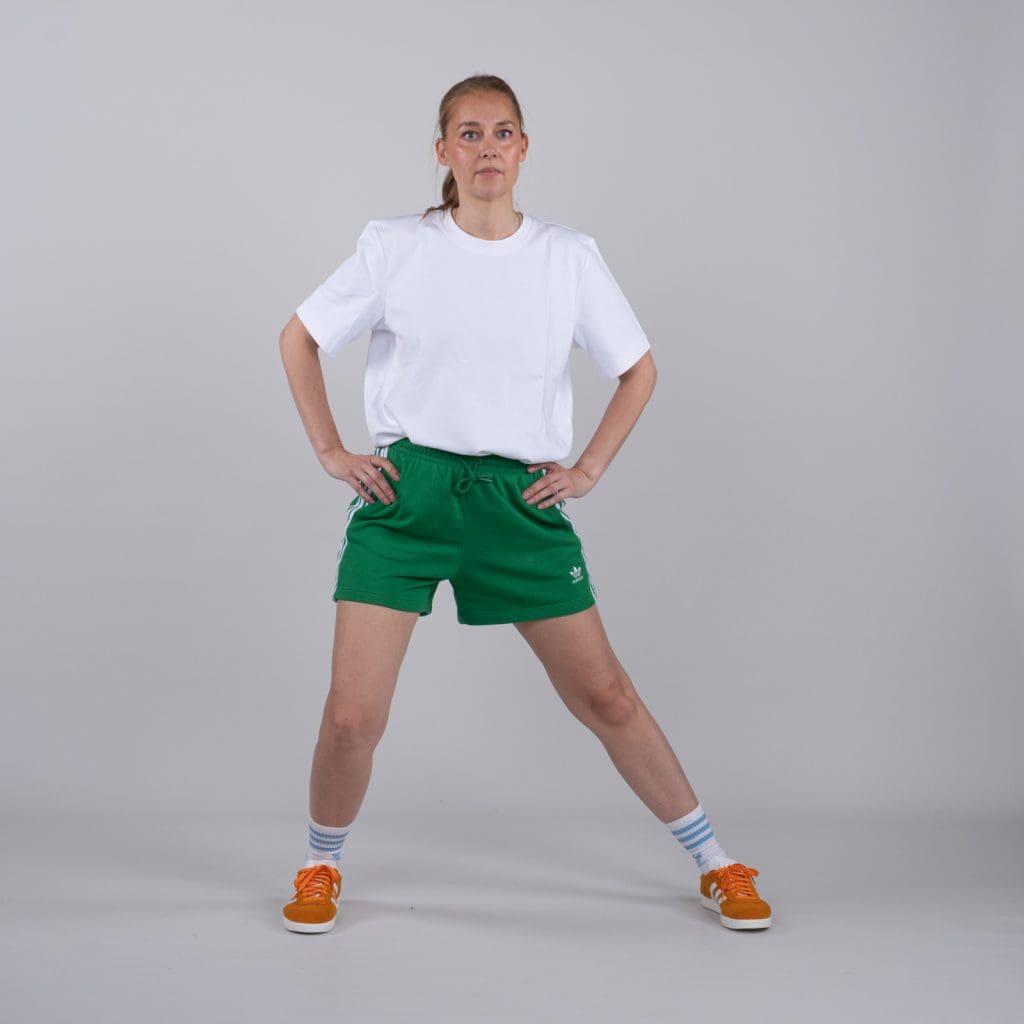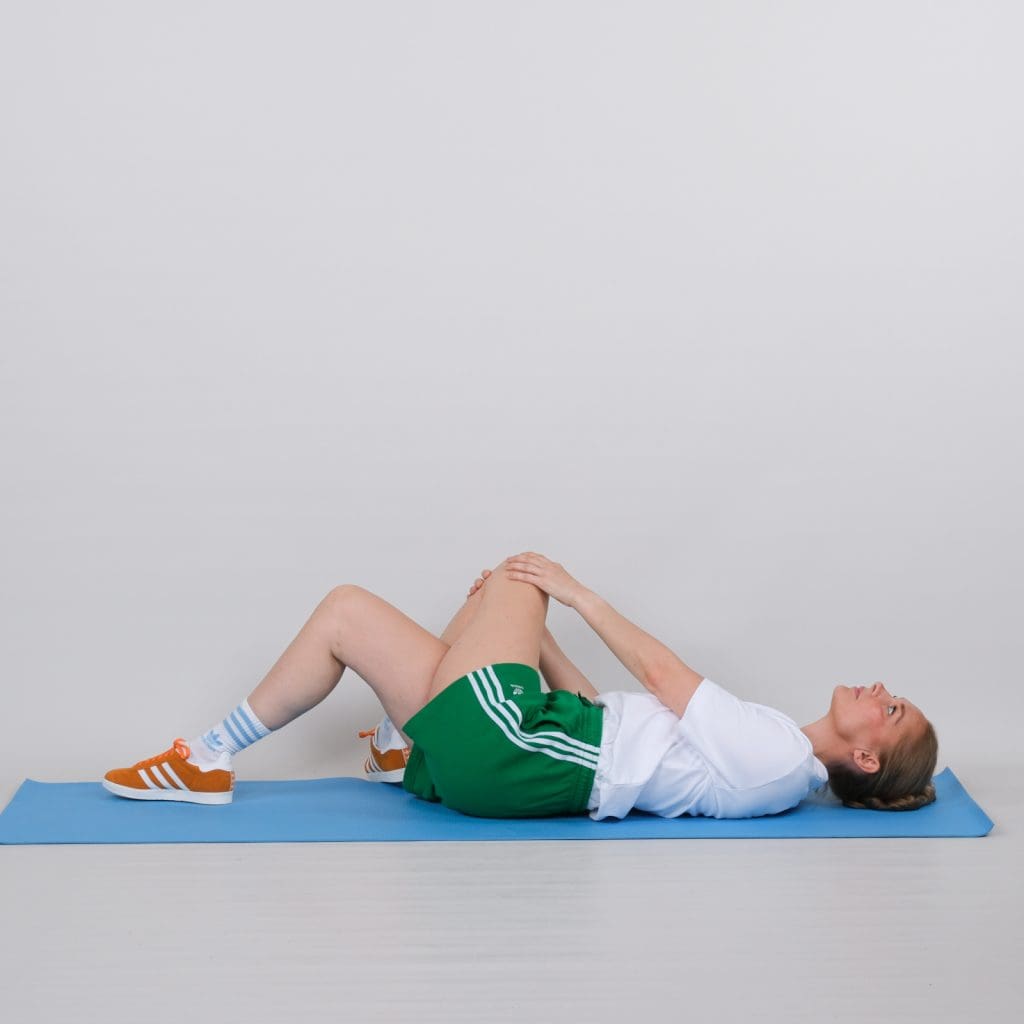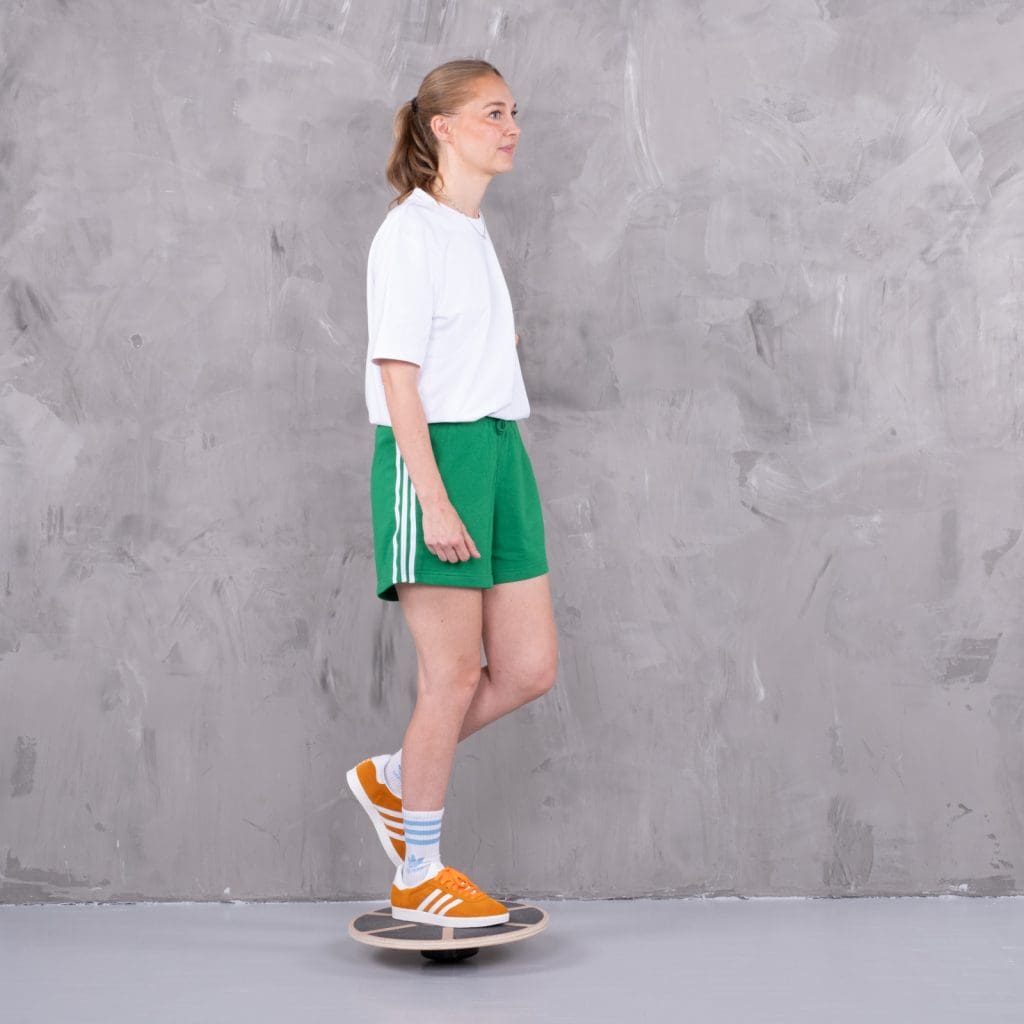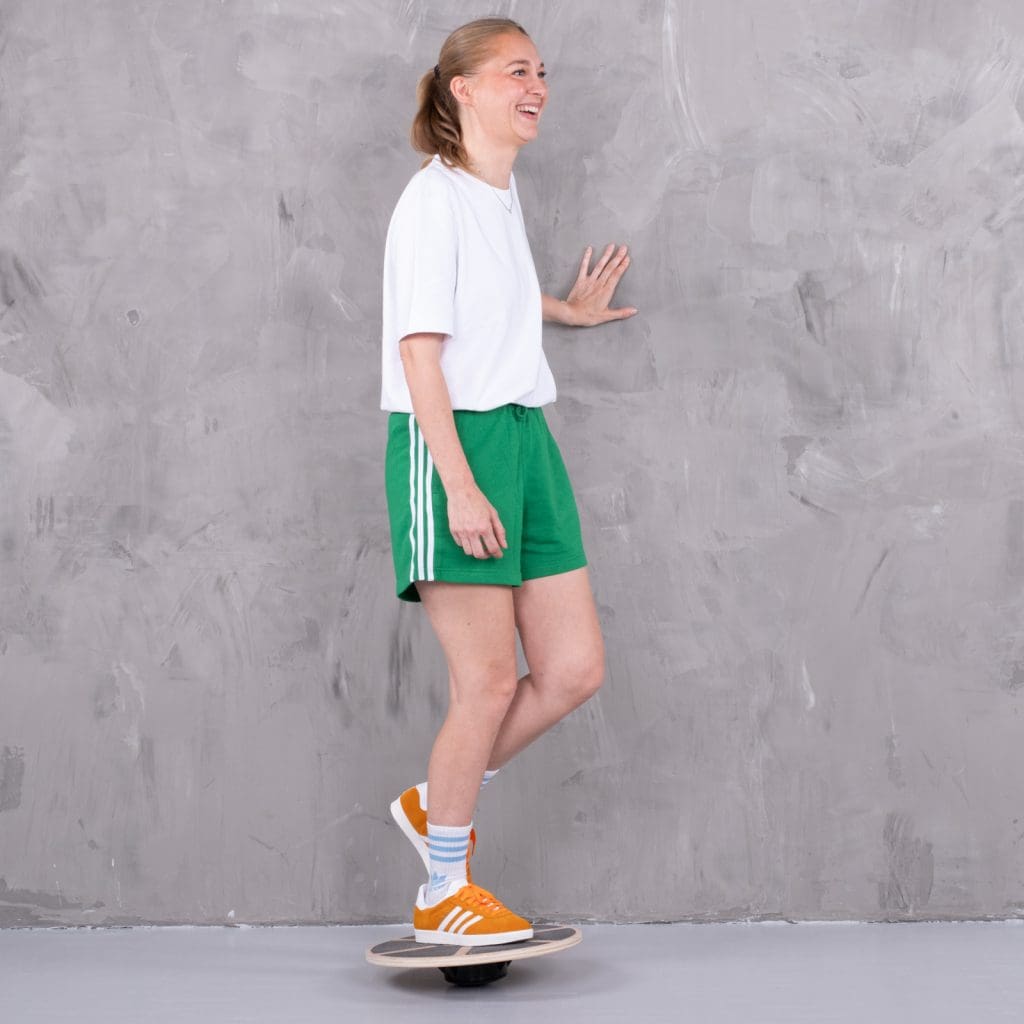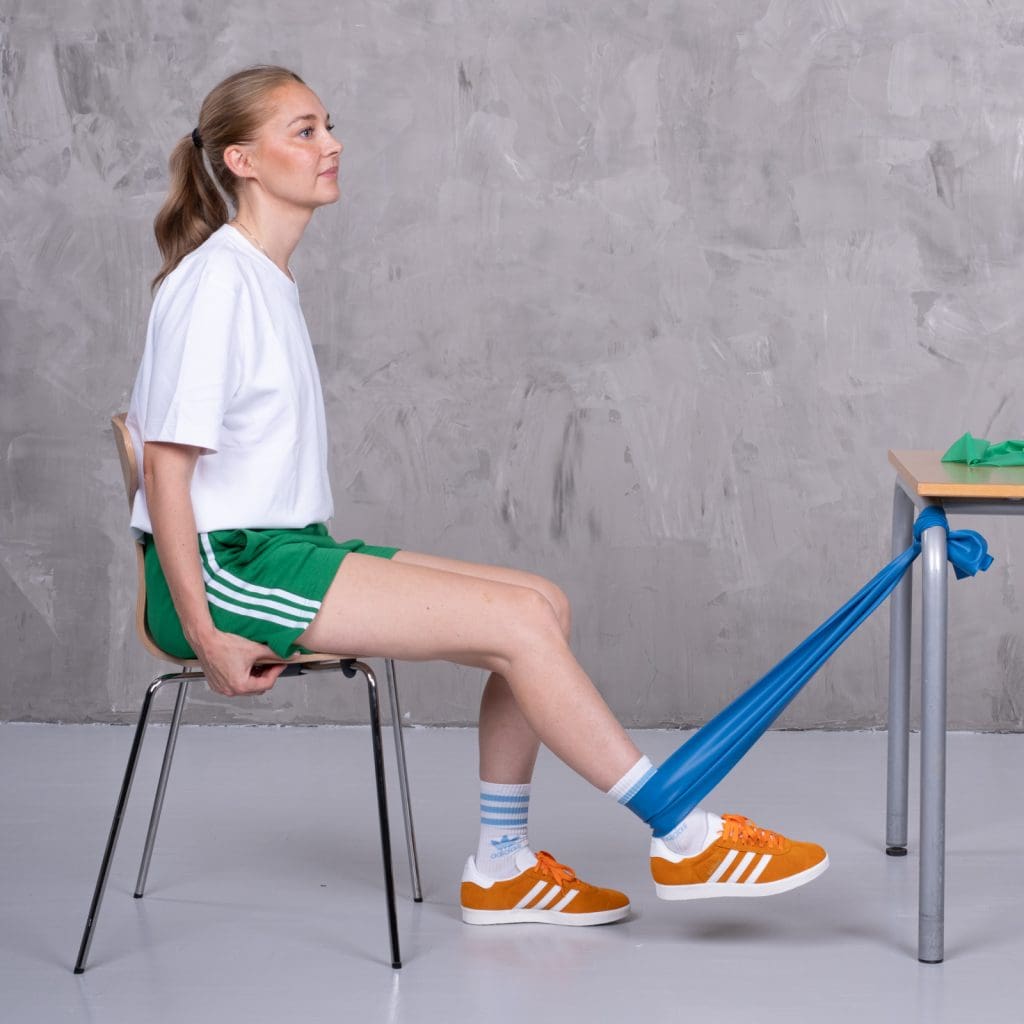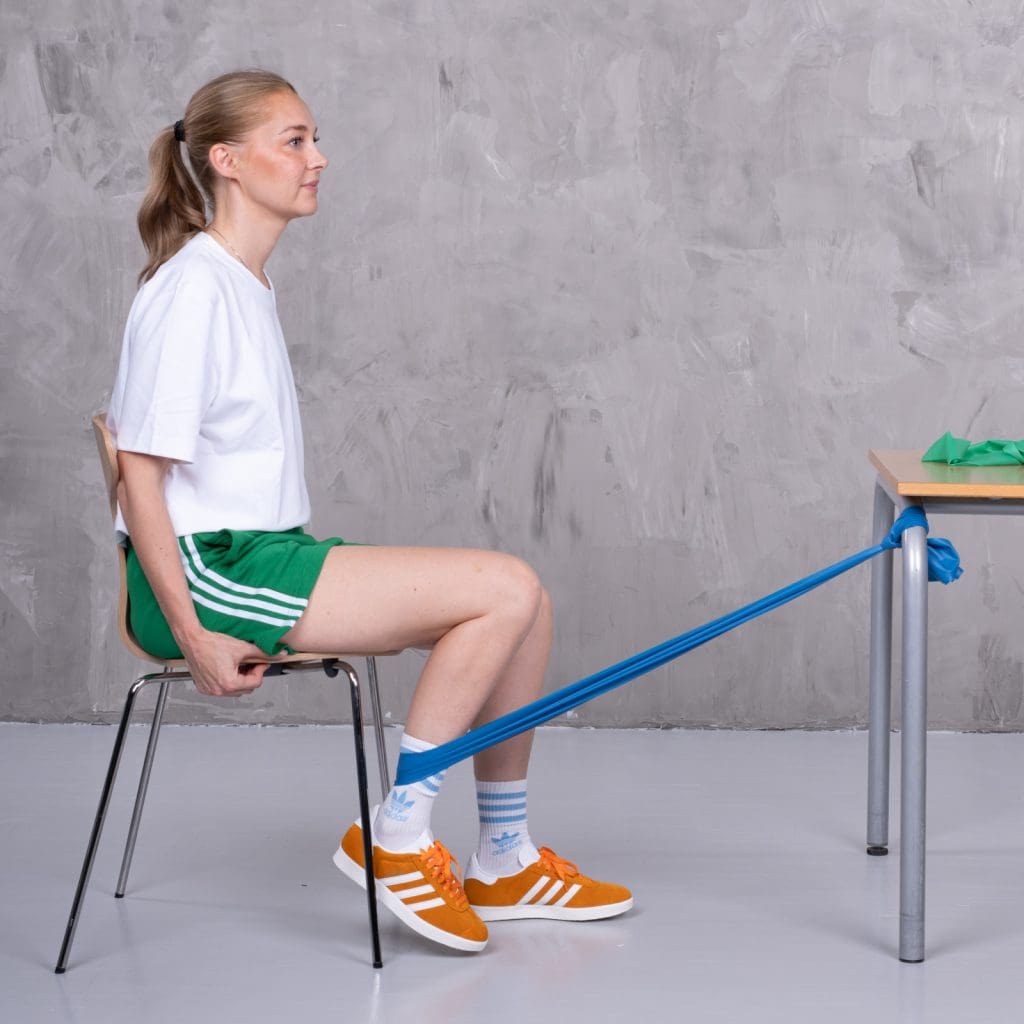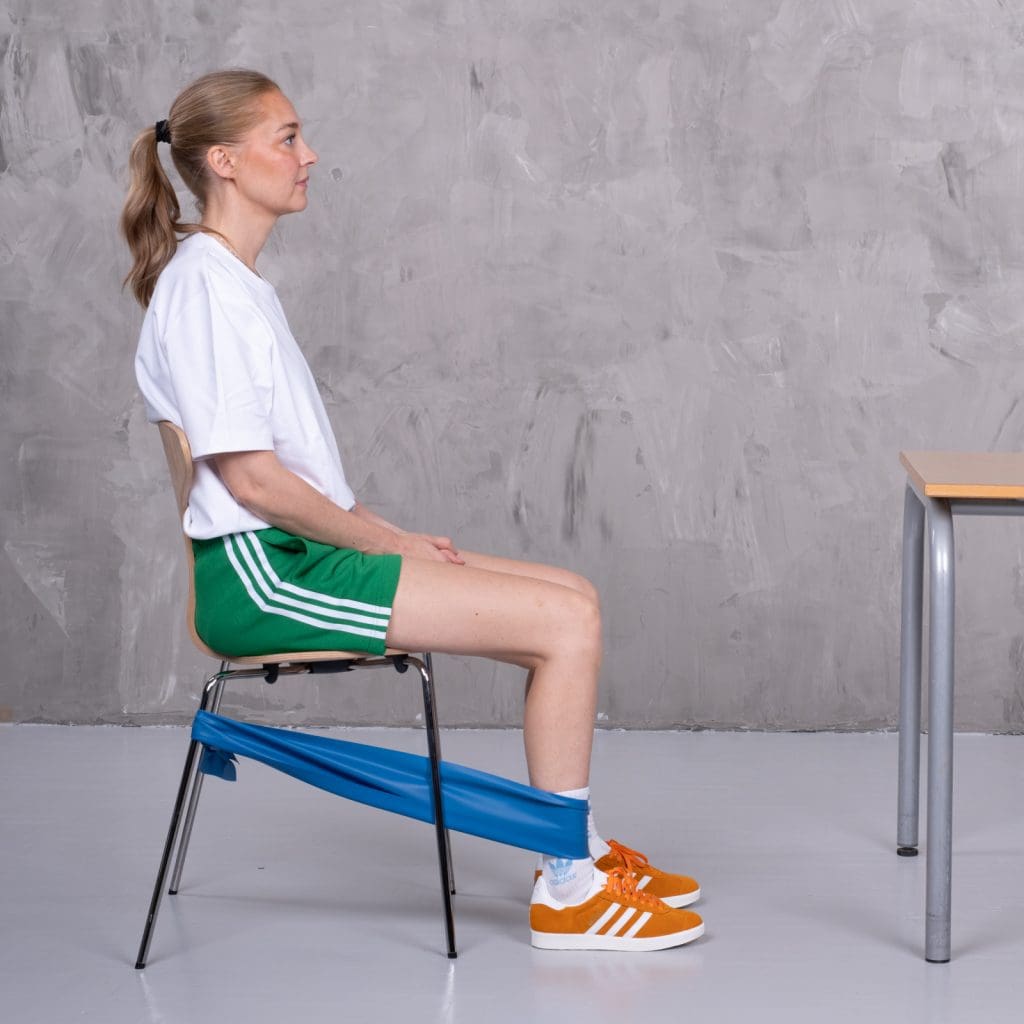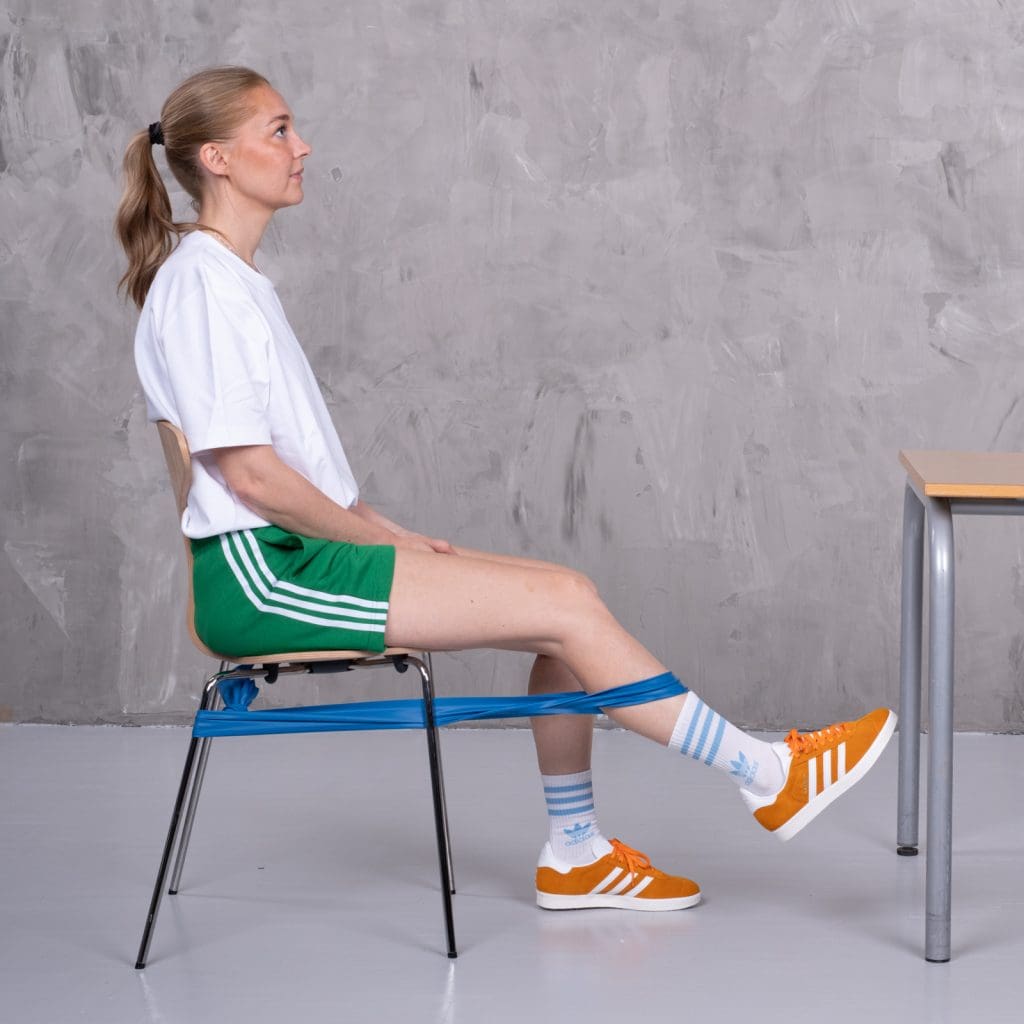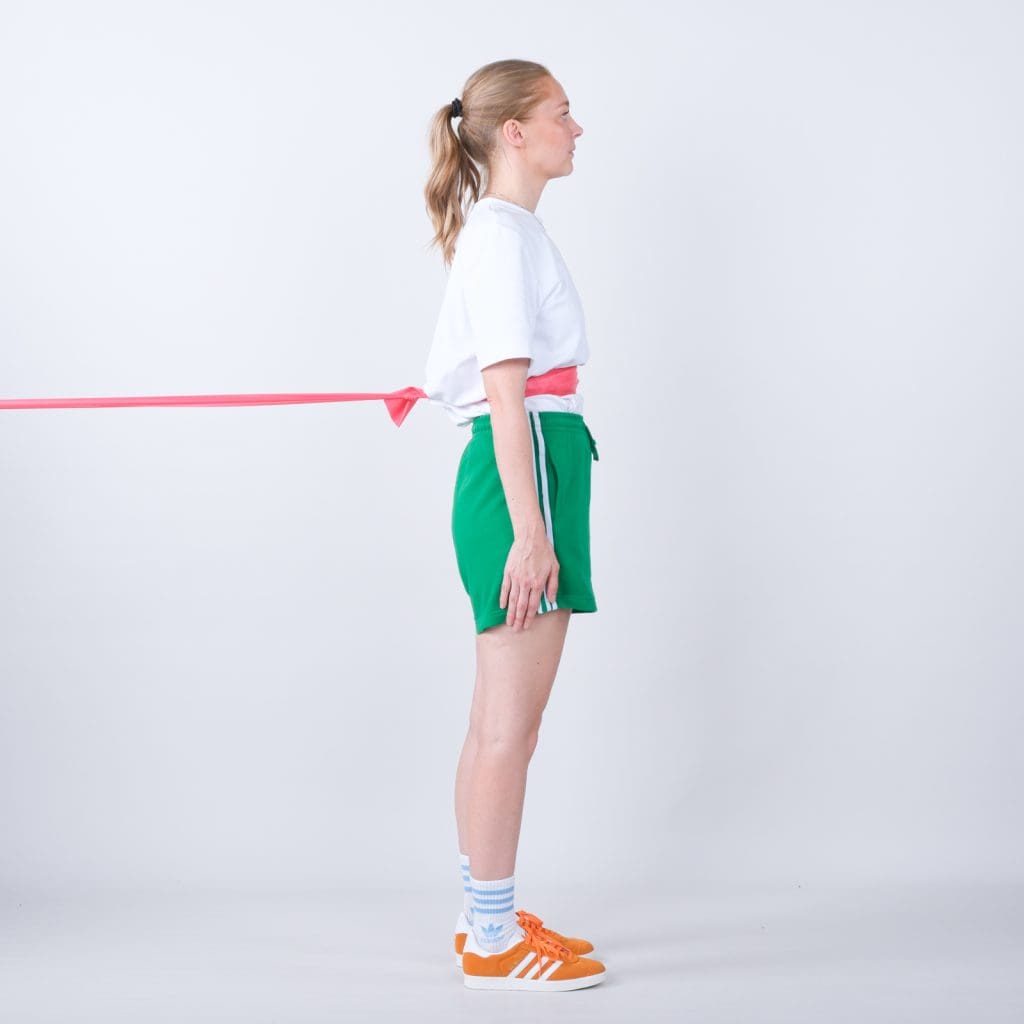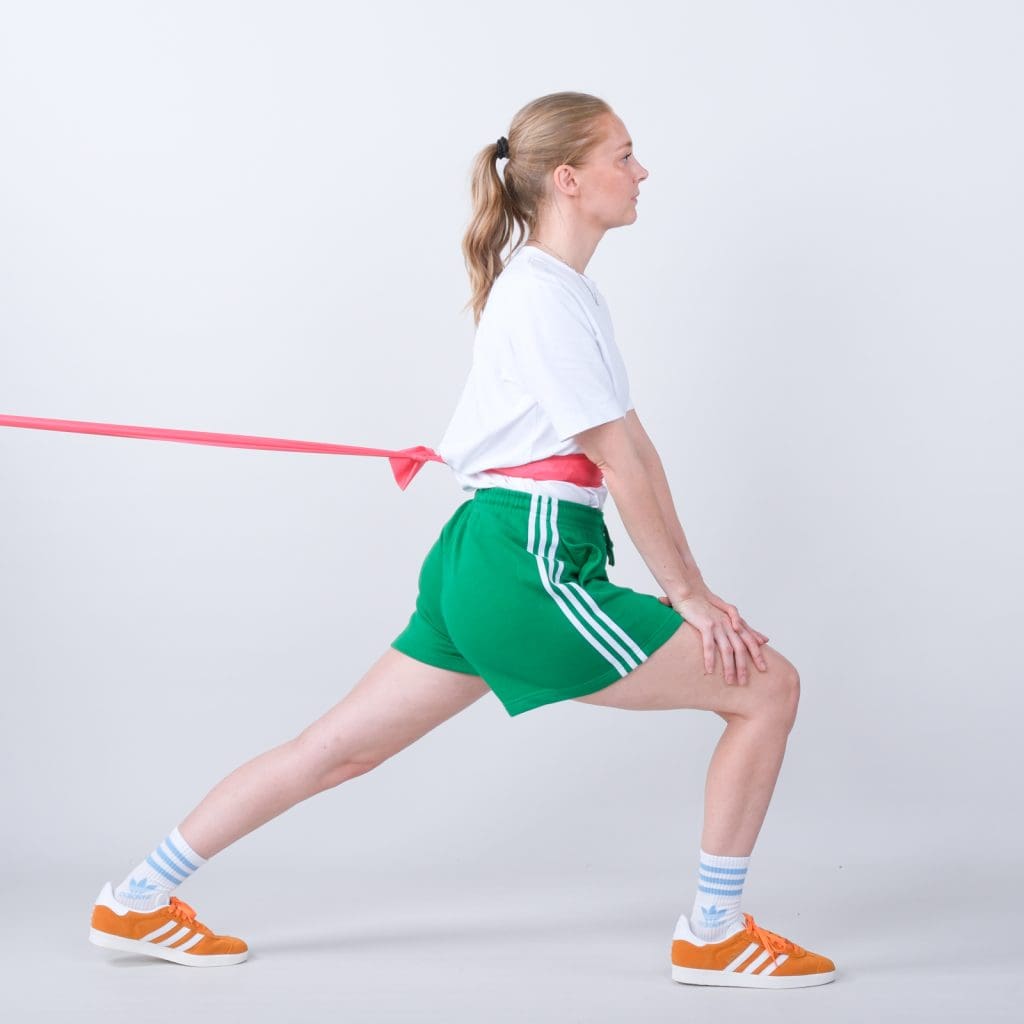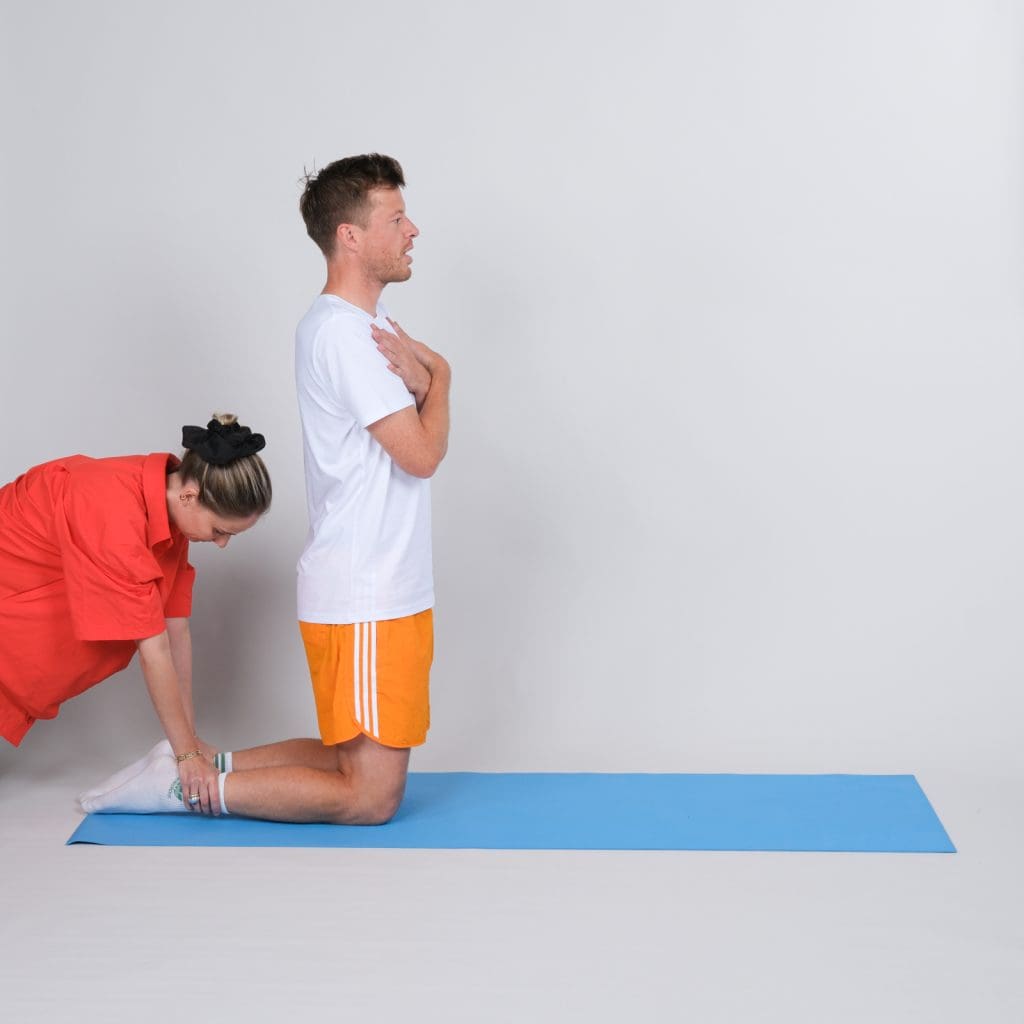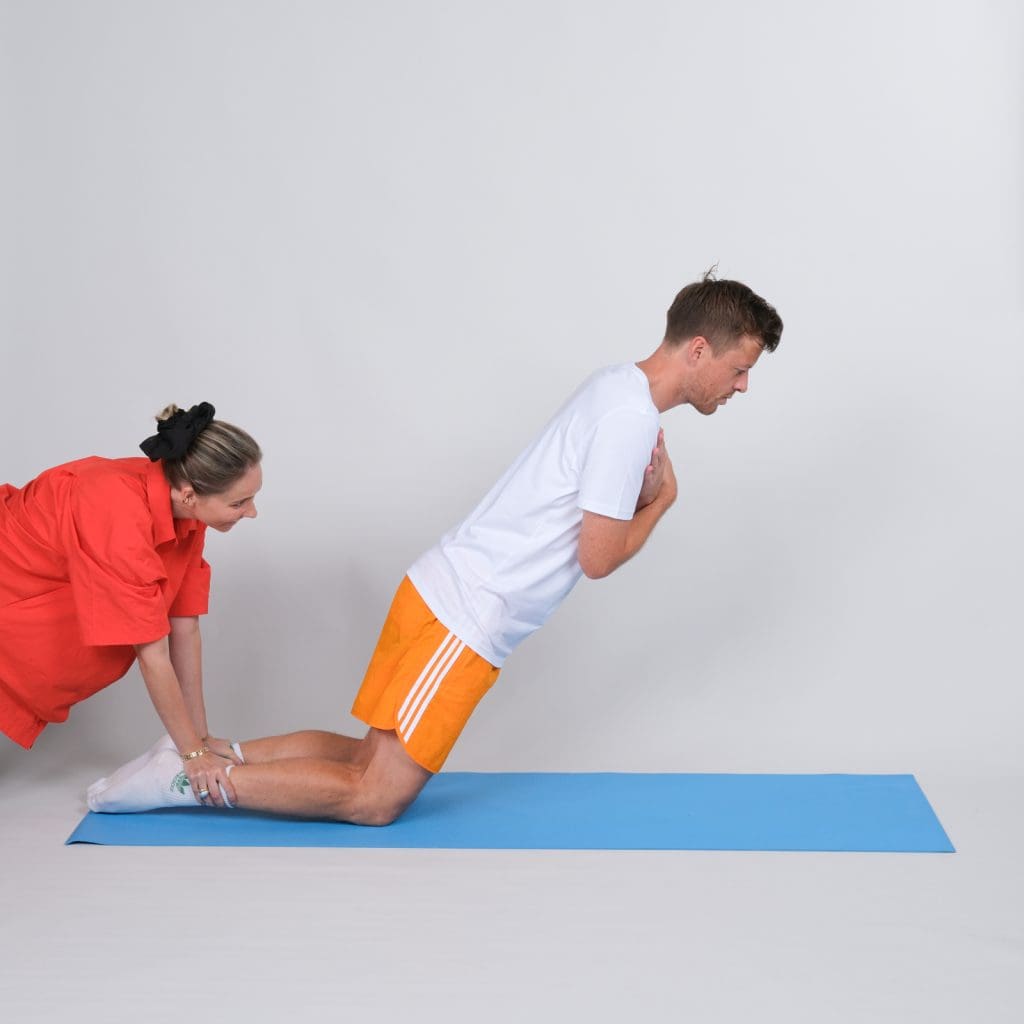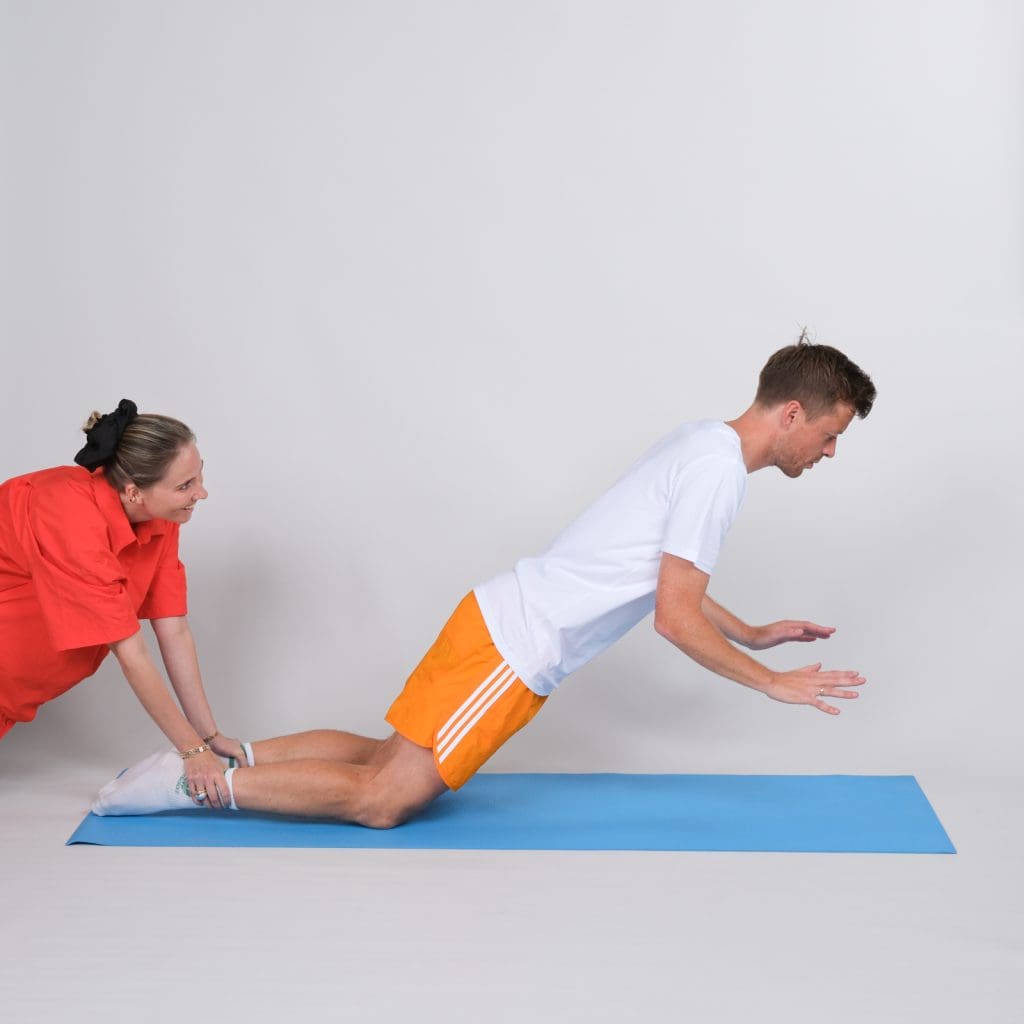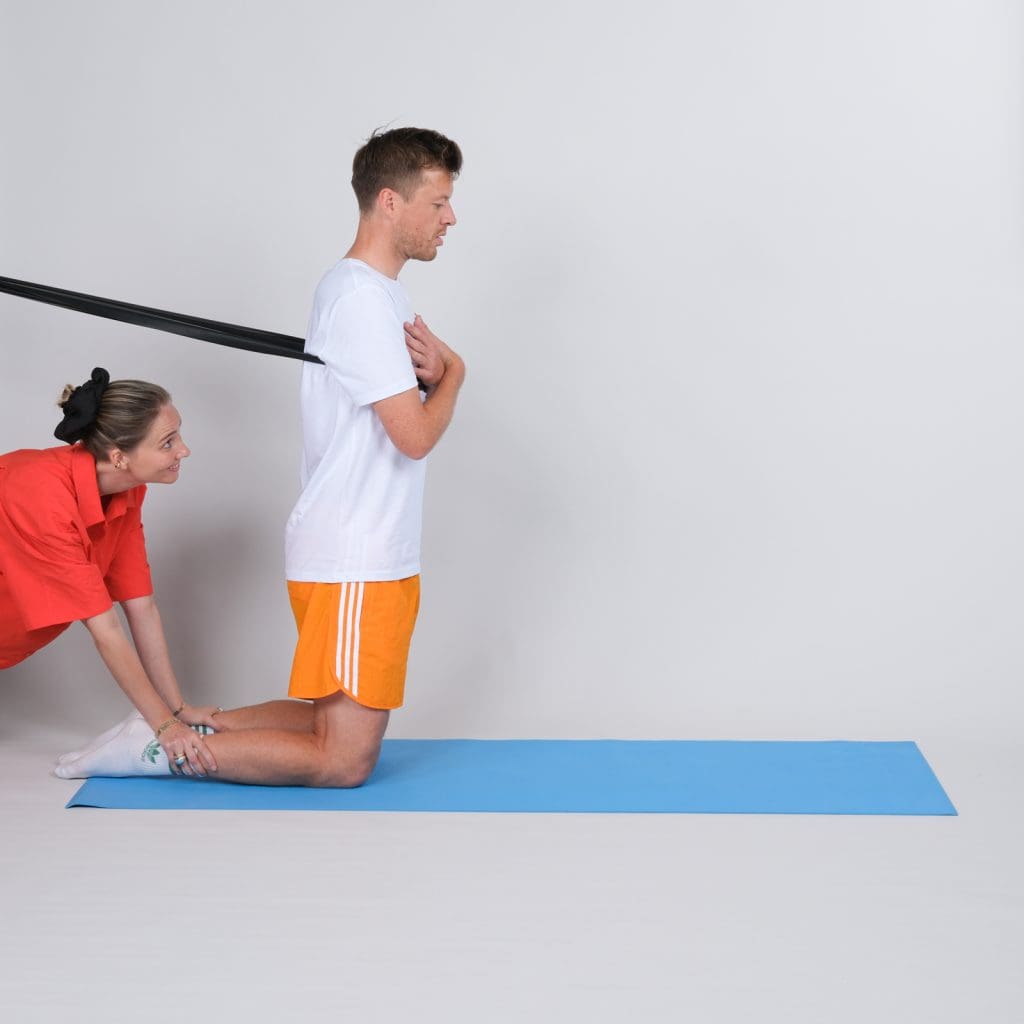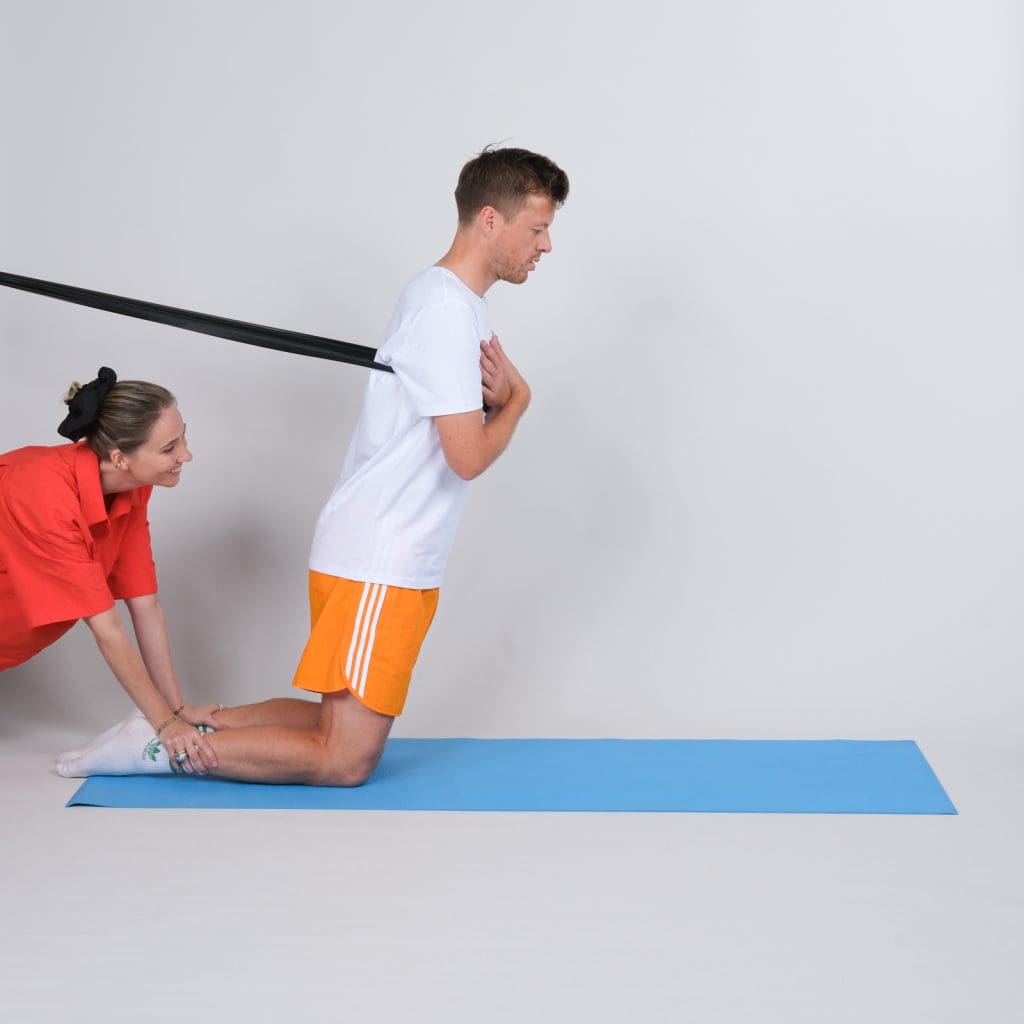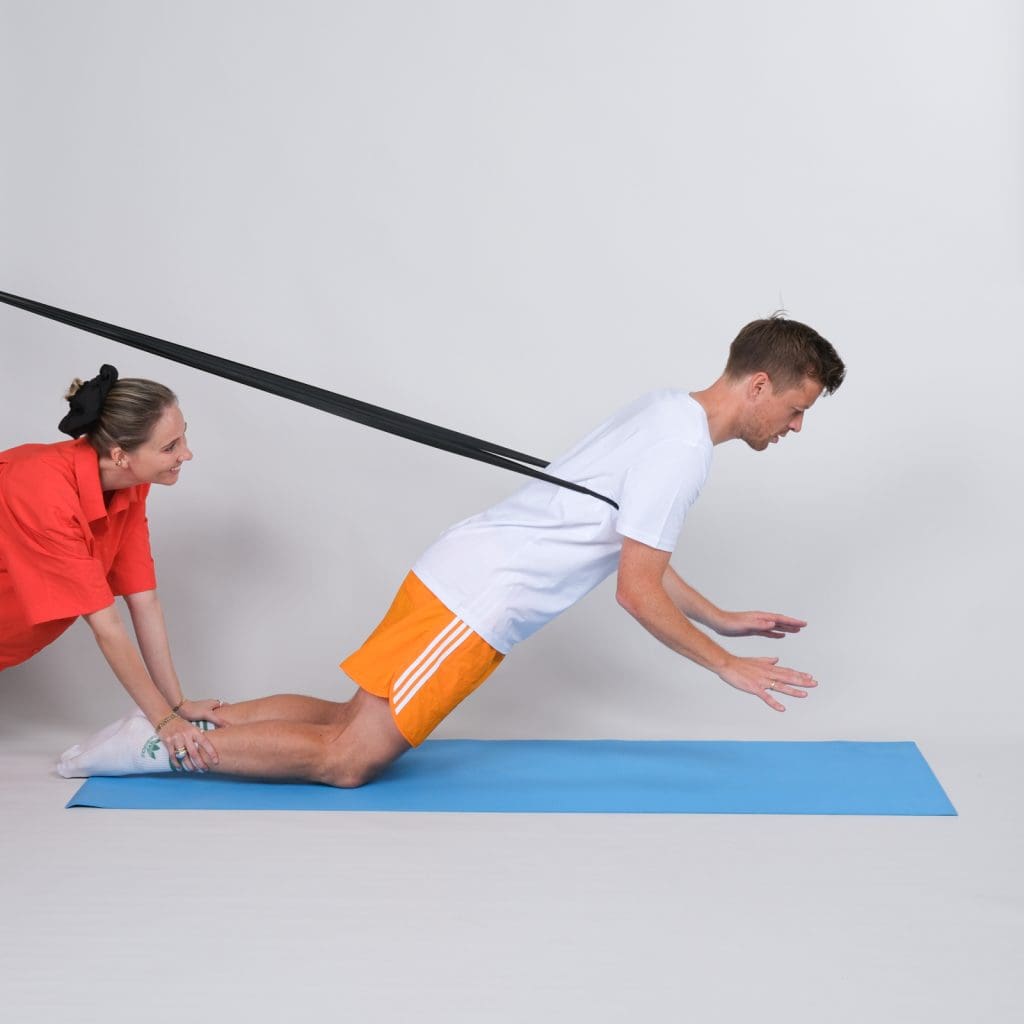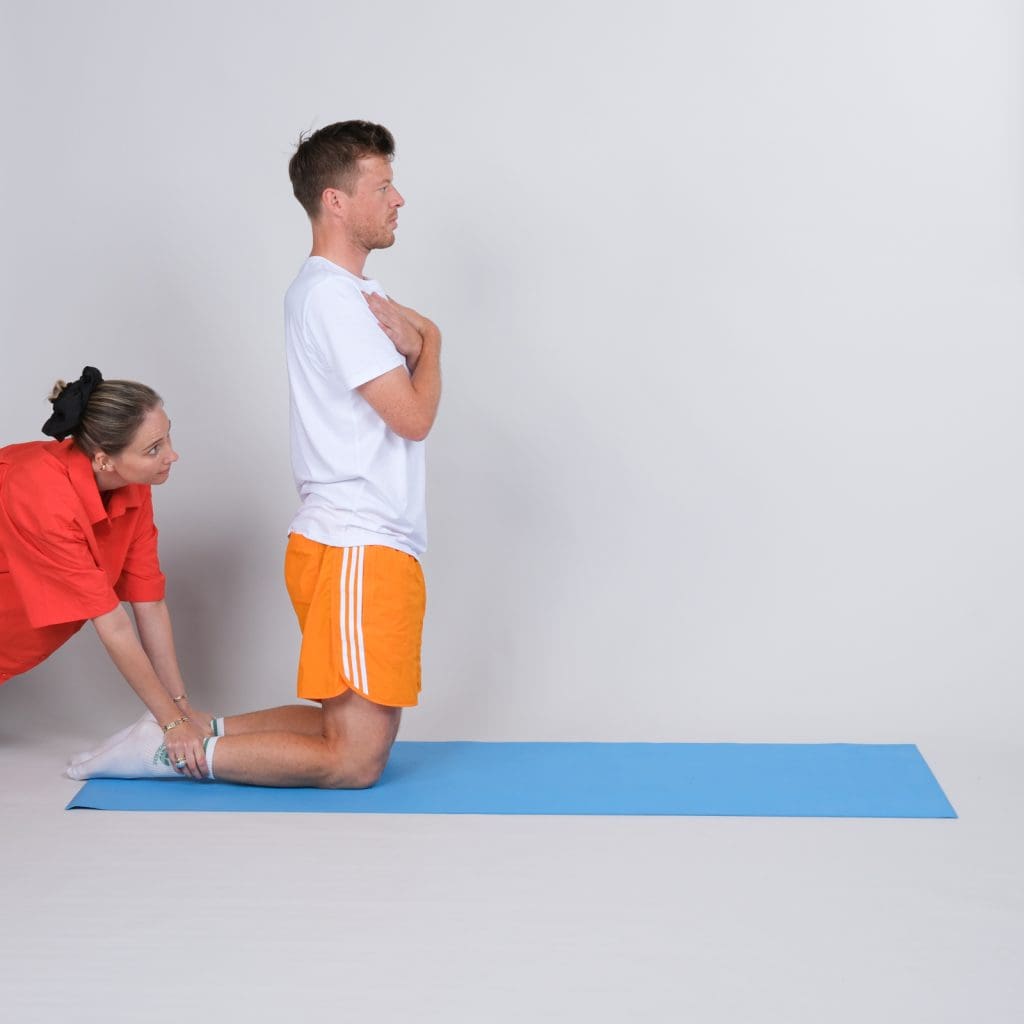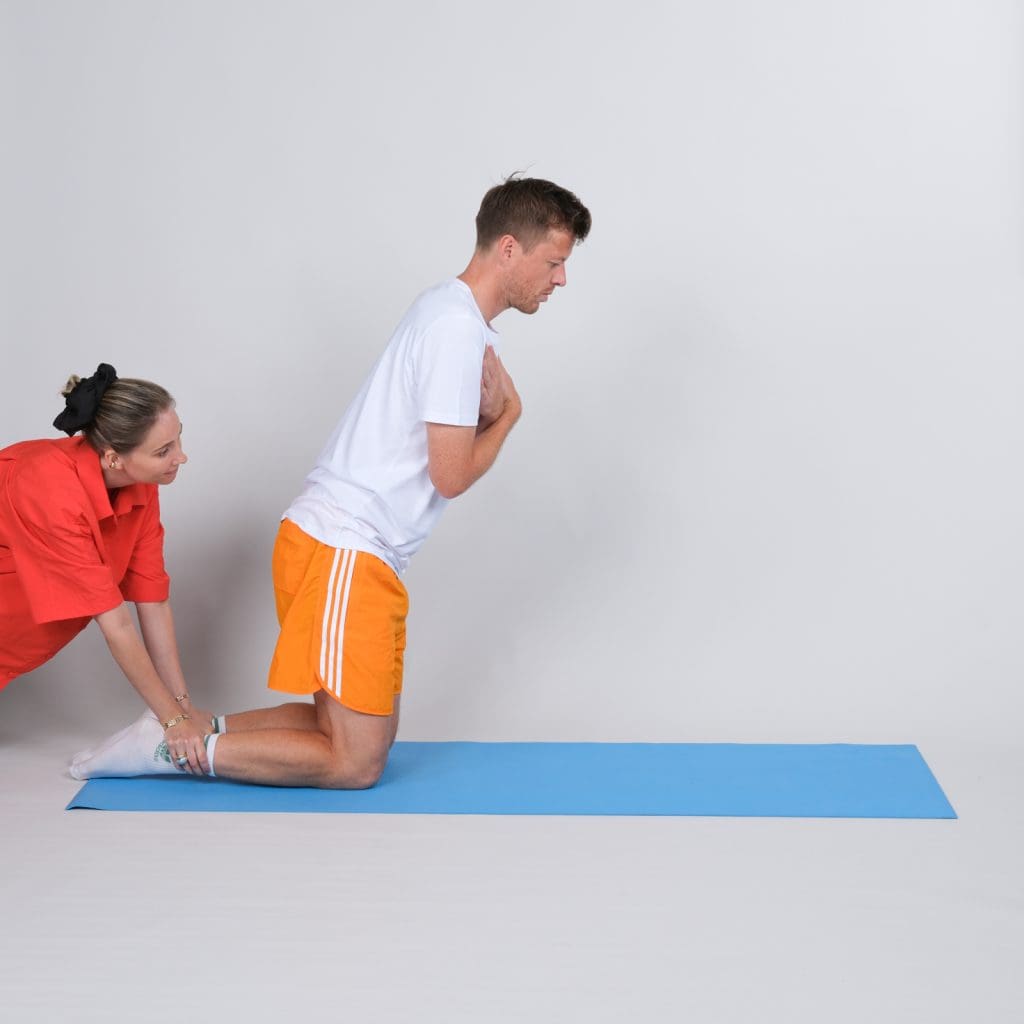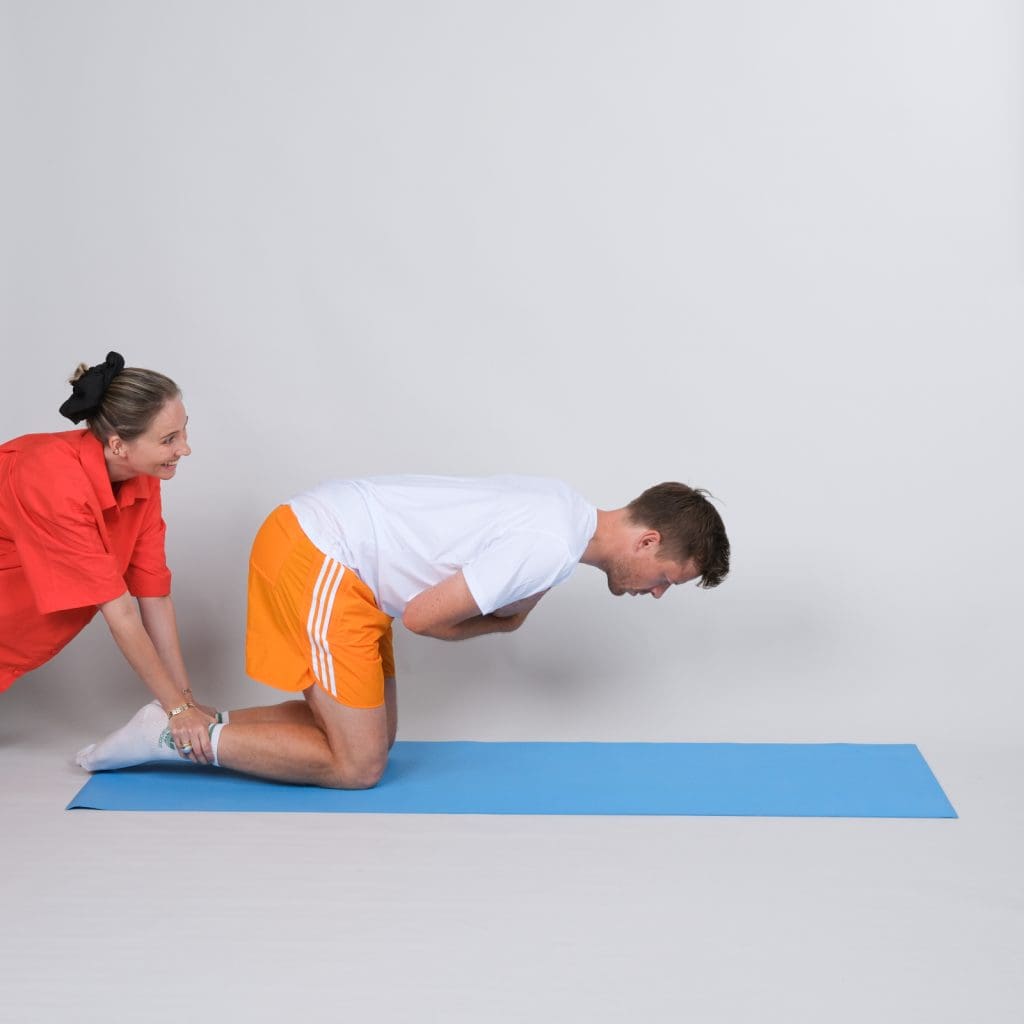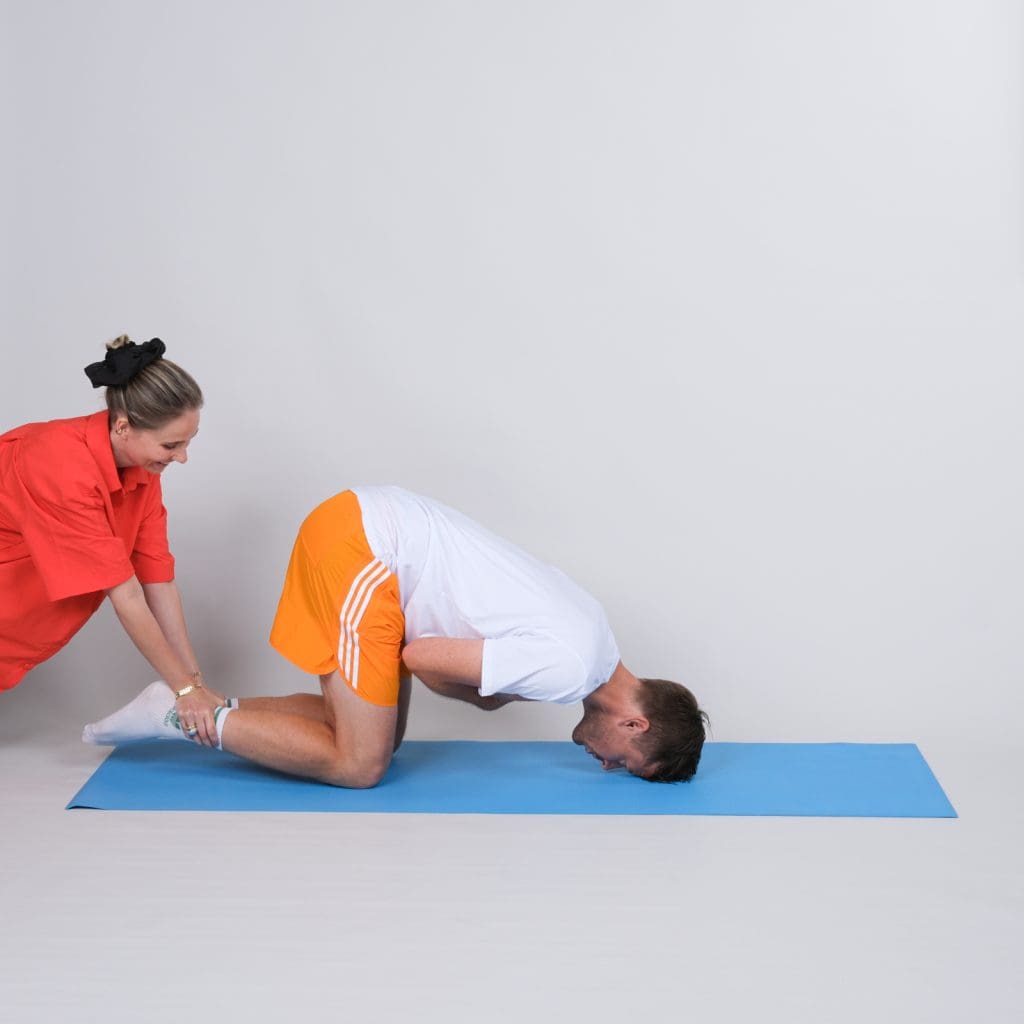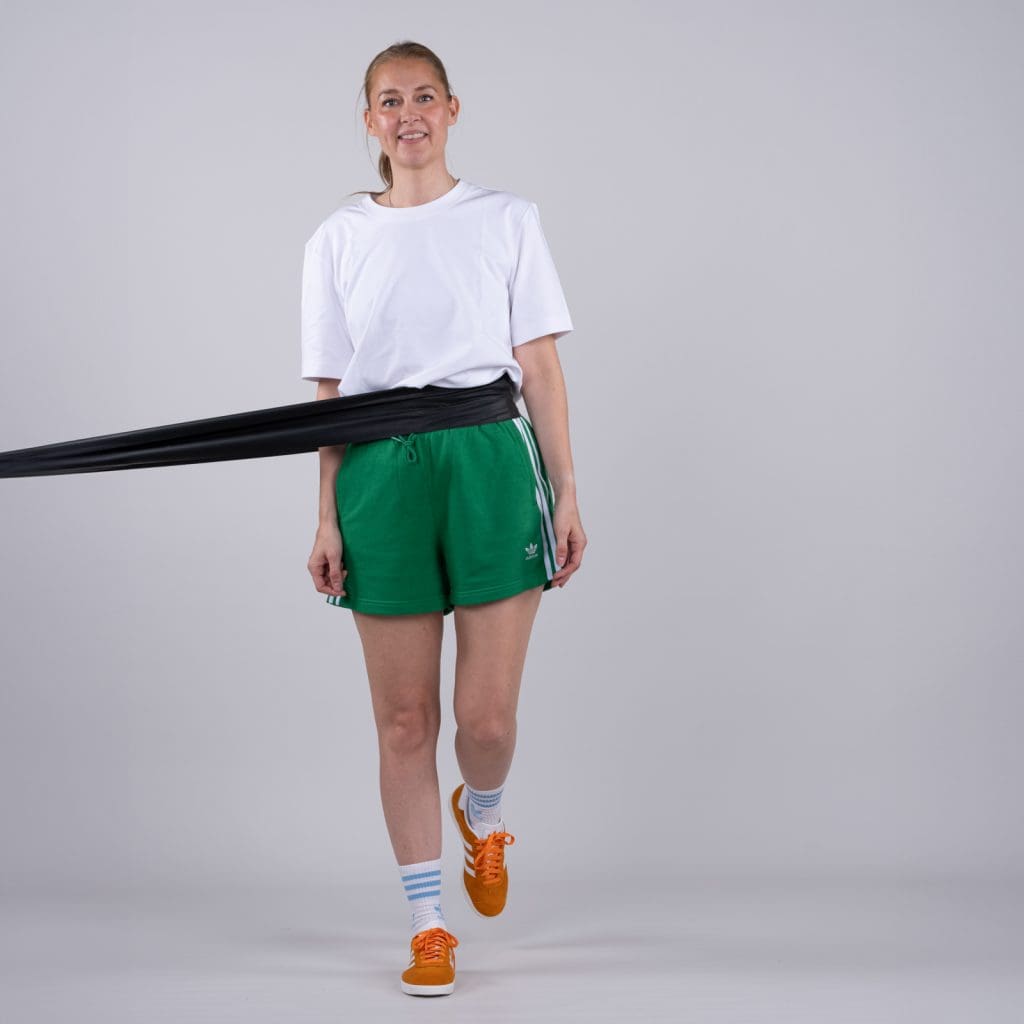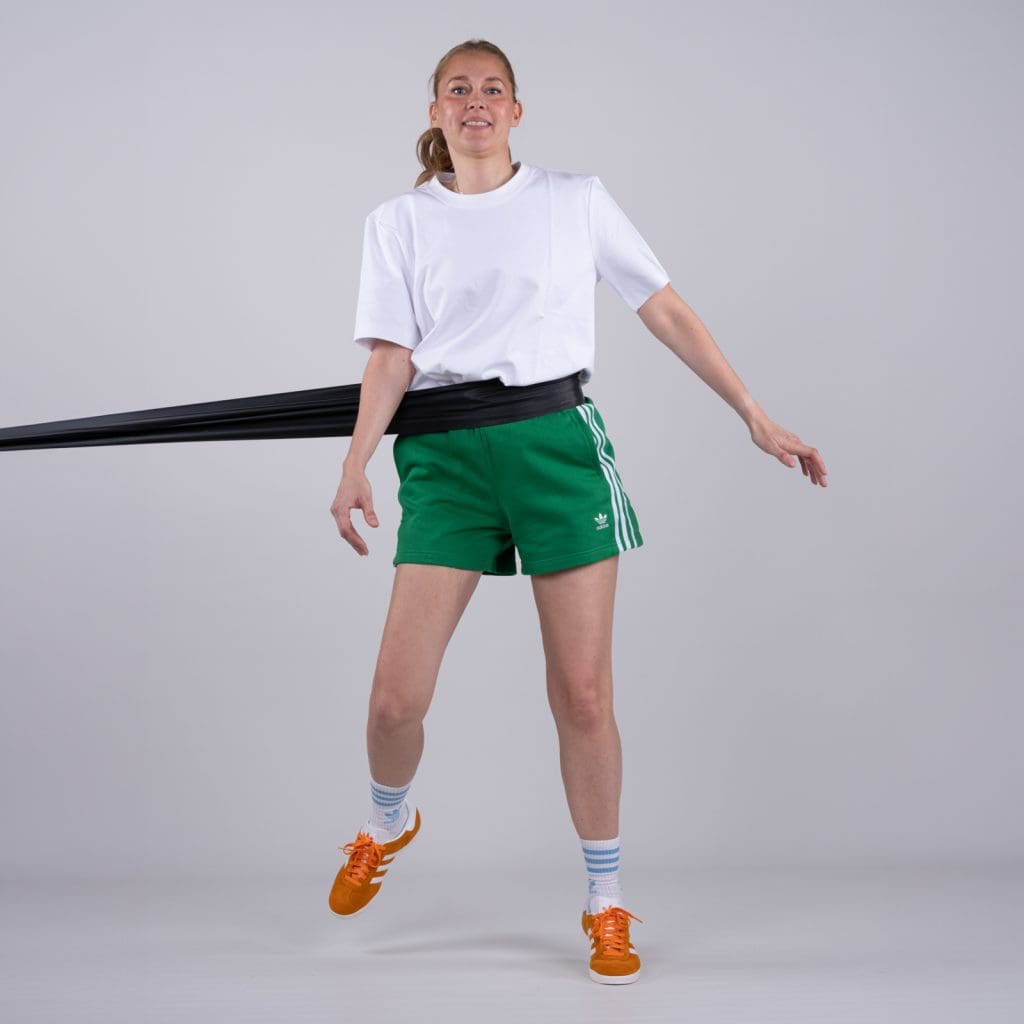Condition
Unlimited: Cycling. Swimming. Running with sprint.
Stretching
10 minutes of each training session
Stand on one leg. Support with one hand on a wall/chair. Bend the opposite knee and grasp the foot with the hand on the same side. Pull your foot up and your knee slightly backwards, so that your front thigh becomes increasingly stretched. Hold the stretch for 20 seconds. Repeat the exercise alternately on the right and left leg. The exercise can also be performed lying on your side or stomach.
Lie on your back with one leg straight. Bend the other leg and place your foot on the other side of the stretched leg. With both hands, pull your knee up towards the opposite shoulder so that your buttocks are increasingly stretched. Hold the stretch for 20 seconds. Repeat the exercise on the opposite leg.
Coodination
5 minutes of each training session
Strength
40 minutes of each training session
Attach an exercise band at hip height in front of you. Sit on a chair with your face towards the exercise band. Wrap the exercise band around your ankle. Lift and stretch your leg. Then slowly bend your knee to tighten the resistance band. Hold the tension for a few seconds and slowly stretch the knee again.
Attach an exercise band 10 cm above floor level. Stand facing the resistance band. Wrap the elastic band around the training leg between the knee and ankle (the lower down, the greater the load). Slowly pull your leg back to tighten the elastic band. Hold the tension for a few seconds and slowly bring your leg forwards to the starting position.
‘Nordic hamstring curls. Sit on your knees. Fix your lower legs*. Slowly lean forwards in a smooth movement. Keep your back and hips straight (tighten your glutes) and hold the muscles on the back of your thighs. When you can’t move forwards any further and fall to the floor, push back with your arms. Push off with your arms so you can use your hamstrings to pull yourself back up to the starting position.
*) Feet can be fixed either by placing them under a sofa, by having someone hold them by the ankles, or by putting a belt around the ankles and passing the belt under an open door with the ankles on both sides of the door.
Sit on your knees. Fix your lower legs*. Attach an exercise band at shoulder height behind you. Pass the elastic band over both shoulders so that you can grab the band with both hands placed on the front of your shoulders. Slowly lean forwards in a smooth movement. Keep your back and hips stretched (tighten your glutes) and hold the muscles on the back of your thighs. When you reach the floor, slowly stand up again by using your hamstrings and the tension in the exercise band to pull yourself back up to the starting position.
*) Feet can be fixed either by placing them under a sofa, by having someone hold them by the ankles, or by putting a belt around the ankles and passing the belt under an open door with the ankles on both sides of the door.
Sit on your knees bent 90 degrees. Fix your lower legs*. Slowly bend forwards in a smooth movement until your forehead (almost) reaches the floor. Use your back hamstrings to pull yourself back up to the starting position.
*) Feet can be fixed either by placing them under a sofa, by having someone hold them by the ankles, or by putting a belt around the ankles and passing the belt under an open door with the ankles on both sides of the door.
Attach an exercise band at hip height. Wrap the exercise band around your hip so that the exercise band is taut. Stand on your healthy leg with your side facing the resistance band. Sit down on the healthy leg and land on the training leg further away so that the exercise band is further tensioned. Remember that the elastic band should be positioned so that it provides resistance in the push-off. Repeat the exercise on the opposite leg.

